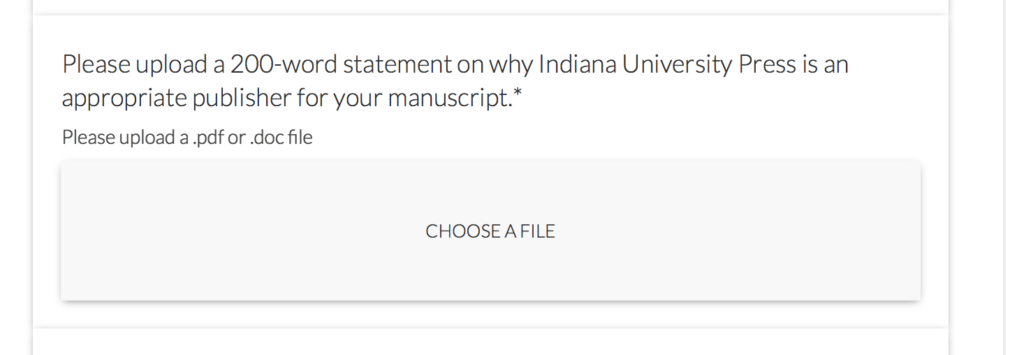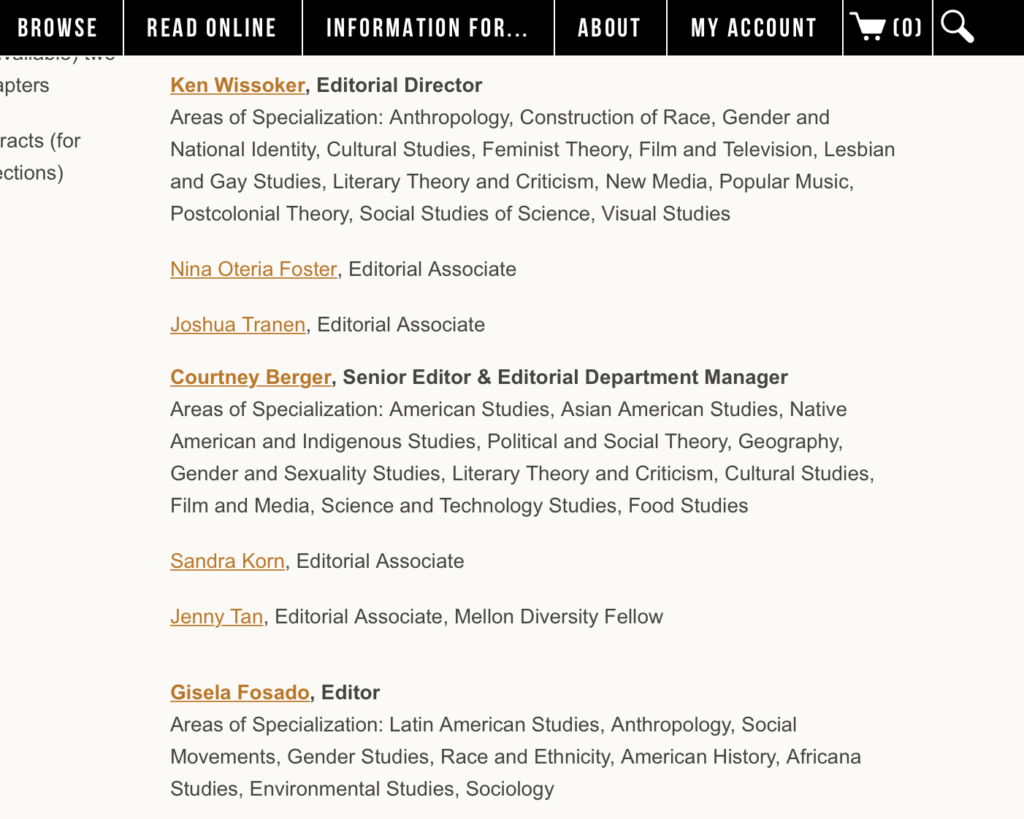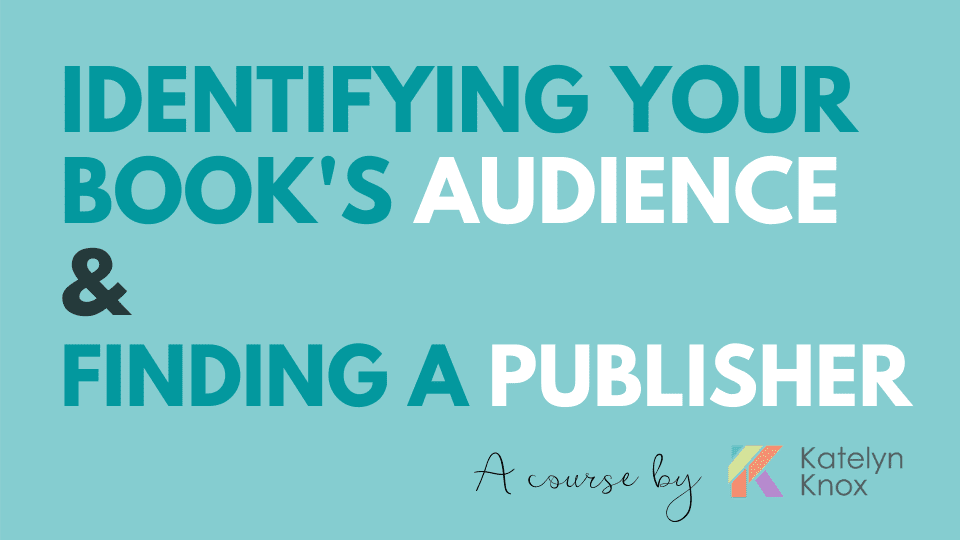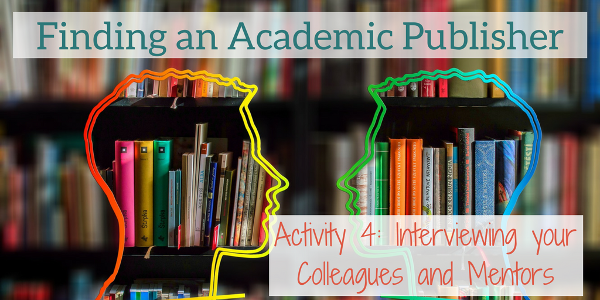How can you find the right publisher for your academic book?
In this four-part series, I show you how to do just that.
By this point, you’re armed with two crucial pieces of information: how presses will see your book, and the long list of publishers that publish books in your field.
In this step, you’ll research your long list of potential publishers in order to narrow it down to the top few that publish books like yours.
“But wait, why would I want to eliminate presses?” I hear you ask. “Don’t I want to send my book to all the publishers in my field?”
Yes and no.
You want to send book proposals to publishers that publish books like yours. In other words, you want to send book proposals to publishers for whom your book is a good fit.
When you’re preparing your book proposals, you will need to be able to make the case not just for why your book deserves to be published, but also for why that press, specifically, would be interesting in publishing your book. In fact, IUP requires authors to submit a separate 200-word statement as part of their book proposal process.

Strong cases demonstrate that have done research into the types of books the press publishes. And they also reveal that your book will appeal to their existing audience.
So, in this step, you will systematically research the presses on your long list.
First, organize the presses by order of relevance. That is, start by researching the presses that came up multiple times when you put together your long list, and proceed in decreasing order of prevalence.
This will give you the greatest possible familiarity with what strong matches look like early on.
Ready?
Here’s how to do it.
How to Identify if Your Book Will Be a Good Fit for the Press
In general, what you’re looking for is evidence that:
- The press publishes books on topics like yours, with a scope and methodology like yours.
- Your book is in conversation with recent books they’ve published.
There are many ways you can go about obtaining this information, and not all press webpages are organized in the same way. But, here are some things you should try.
Scour the Publisher Webpages of Books in Your Bibliography and on Your Bookshelf
In the last article, I showed you how to identify possible publishers by looking through your bookshelf and bibliography. Now, it’s time to use that information to your advantage.
(Note: if you don’t have specific titles for a particular press, don’t worry! Just skip this step.)
Search for that book in the press’s catalog.
Depending on the press, you might find a wealth of information, or you might not find much that will help you assess whether your book fits with their list.
This is what you are looking for:
- Whether the book was published in a series (more on series below)
- The subjects the press categorizes the book in. This will help you get a broader sense of how the press will classify your book and what they publish in this area.
- Other related books
The University of North Carolina’s system is excellent in this regard. Notice how it displays the book’s series (Justice, Power, and Politics, in this case) as well as the four subjects the book falls under.

(UNC Press also displays “related books” under “related subjects”).
Use these links to lead you to more information about the types of books the press publishes in your areas.
In turn, this information will help you either eliminate the press (because it does not publish books like yours), or strengthen your book’s case.
Browse Their Recent Publications
As you’re looking, ask: are there any books that are topically related to yours? Click on their entries to explore further.
Sometimes, you will find that they were published in a series. If this is the case, you might see a link to the series listed, like this recent IUP title:

If so, clicking on it should take you to that series’s main page. Usually there will be a description you can use to assess whether your book will fit. Additionally, you should be able to see the other titles in the same series. Is your book similar to the others, in terms of topic, scope, and methodology?
Browse by Subject
Be sure to sort the titles by newest to oldest. This will give you a better sense of what the press is publishing now. Ask: in what way is your book similar to/different from what the press typically publishes in your subject area?
If you are writing a book on African literature, but all the books on Africa are about African history, your book might not be a good fit for the press.
Similarly, if you are writing a book on Mexican dance culture and all of the books on Mexico focus exclusively on literature and history, your book is probably not a good fit.
Browse by Series
You can think of book series as a sort of book equivalent to edited special journal issues. They are a collection of books curated by senior professors (series editors) who want to promote certain scholarly conversations, topics, and methodologies. Because series are more narrowly focused than a press’s more general subject list, it can be easier to make a stronger case for how your book fits in a series. So, be sure to study the description.
Usually, each series page will show you a series description, the series editors, and recent books published in that series. For instance, here is the page for the series my book appears in.

After reading the series description, study several individual titles to see how well your book would fit in that series.
Or, learn more about book series and why you’d want to publish in one.
Research the Acquisitions Editor(s) in Your Subject/Field
Acquisitions editors specialize in the publishing landscapes of one or more fields, and are responsible for acquiring titles in these subjects. Over time, they tend to develop their own interests and preferences. Note that when you submit book proposals, you will submit them (by email or mail) to one acquisitions editor only. So, you will need to know which acquisitions editor at each press most closely aligns with your book’s topic.
You will usually find information about acquisitions editors on a press’s “Contact Us” page. Sometimes you will find it on an “Information for Prospective Authors” page.
Often, information about acquisitions editors will be little more than the subject areas they are responsible for. Consider this page at Duke University Press:

So, you will need to browse those specific subject areas to get a sense for the editor’s taste(s).
Other times, though, the acquisitions editors’ bios will contain a goldmine. Check out how much more useful this bio from the University of Nebraska’s website is for prospective authors:

If, after reading this bio, I thought my book would be a good fit, I would definitely check out her “recent books” and relevant series.
Search for Relevant Keywords in Their General Catalog
This strategy can give you an overall sense of the types of books your target press publishes on your general topic. You’re likely to see many of the same books you already discovered above. So, this step’s main purpose is to help you confirm what you already know.
If you find any new books you had not discovered through other research, click on them to find out more. Be sure to note if the book is part of a series in which you think your book could fit.
Now What? Eliminate the Press or Make the Case for Your Book
Doing all the steps above will give you a very good sense of the types of books those presses publish in your subject area(s).
Armed with this information, you are now ready to make the decision: does the press actually publish books like the one you’re writing?
If not, eliminate that publisher. Doing so helps you focus your time and energy on preparing the strongest possible proposal for the publishers who might actually be interested.
If you decide the press is a good fit, be sure to take good notes about why, focusing especially on its recent important works, authors you know personally who have published with the press, acquisitions editor and proposal information, and your justification. You’ll use this when you write and submit your book proposal.
Repeat the whole process with all the other presses.
Go Deeper on This Topic
- Chapter 4 of William Germano’s Getting it Published (ebook) which discusses how to find a press, and talks about the advantages and disadvantages of being published in a book series at length.
- My standalone course on identifying your academic book’s audience and finding a publisher.

